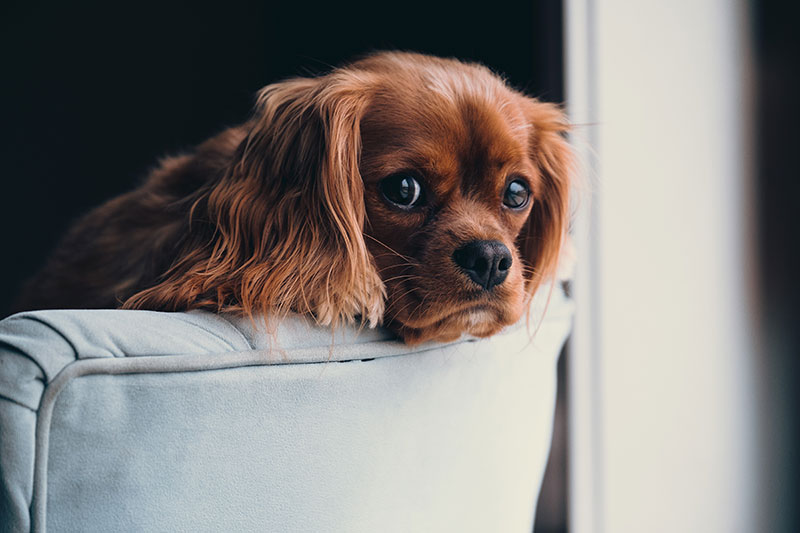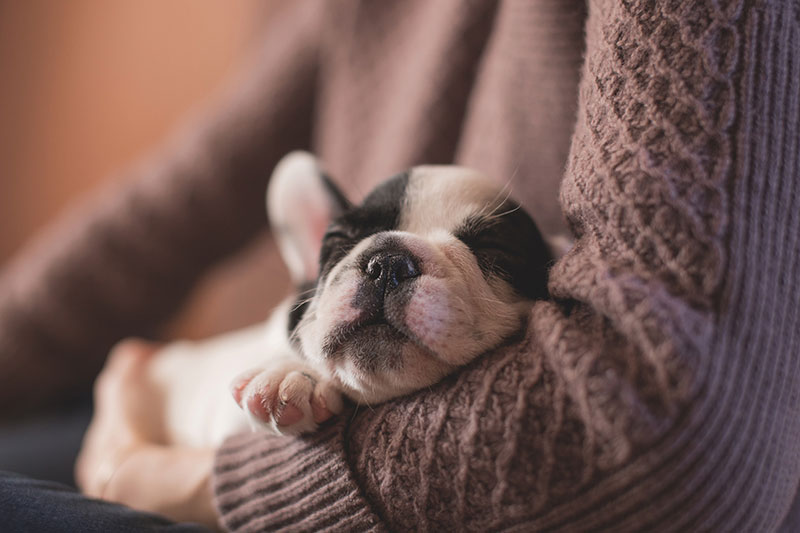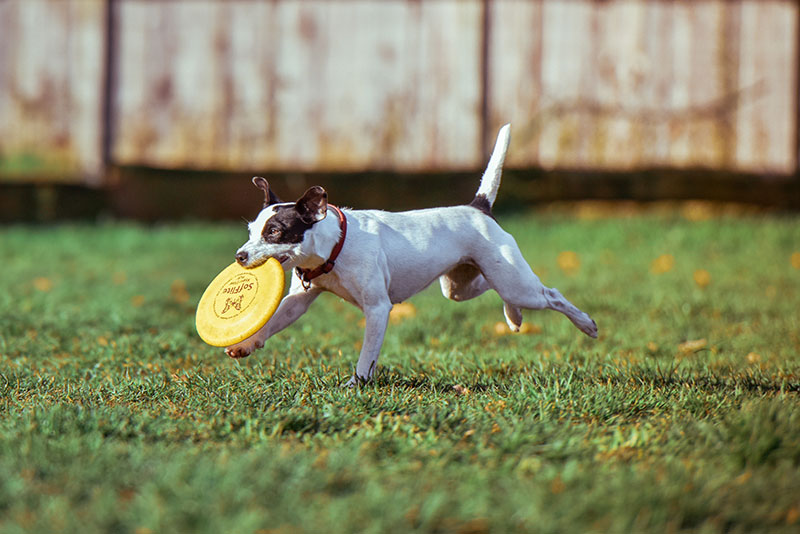Can You Really Work Full Time And Be A Good Puppy Parent?

Do you work full-time? Are you thinking of getting a puppy? Perhaps you’re not sure how to find a balance between work and raising a healthy puppy?
If these questions have kept you from getting your own small fur bundle of joy, then cheer up.
Lots of puppy parents have successfully raised a healthy puppy. And, they didn’t have to sacrifice their career to do it.
Yep, it can be pretty challenging. But, it’s not impossible.
In fact, if you have a stressful job, raising a puppy can be one of the best ways to de-stress. The University of Missouri-Columbia published a study which stated that certain positive hormonal changes take place when humans and dogs interact.
Stroking your puppy releases oxytocin, prolactin, and serotonin in your body. These are “feel good” hormones which help improve your mood if you are depressed.
So if you are toying about whether to get a pup while working, read on to find out how you can do it:

3 Unique “Gotchas” You’ll Have to Tackle After Getting a New Pup:
Raising a young puppy can be toughwhether you work a full-time job or are a stay-at-home person. But it’s more challenging if you are working full-time.
Puppies need a lot of care and special attention. You have to make sure a puppy doesn’t get lonely, develops well, and grows old without behavioural issues.
You won’t face these issues if you get an older dog. But, isn’t watching a puppy grow up part of the charm of owning a dog?
Here are 3 unique “Gotchas” that you’ll have to tackle after getting a new pup:
1) Helping Your Pup Handle Loneliness When You Are Away From Home:
New-born puppies get anxious and lonely when left alone. If your puppy is young, and you leave it alone during the day, it may turn to:
– Chewing up all your furniture
– Pooping and weeing all over your house
– Non-stop barking
You can tackle all of these by being patient both with your pup and yourself!
First, you should spend loads of time with your pup in the first couple of weeks.
No, you can’t afford to take 3 or 6 months off work to give your pup company. But, you should take a break from work for at least a week initially.
In that first week, let your pup get used to “solo-time” in a gradual manner. By doing this, it won’t be left all alone for long periods.
Your pup will also become used to spending time without you. Also, get it a few chew toys and comfortable blankets to play with. These will help make the change easier when you go back to work.
Buy a pet monitor to monitor your pup while away from home. A two-way pet-monitor is a great idea though it may make your wallet a bit lighter! The comforting sound of your voice will help calm your puppy while you’re away.
2) Toilet Training Your Puppy While Working Full Time:
Your puppy will have poor bladder control when young. After all, puppies do have smaller bladders as compared to adult dogs.
So, it can’t hold its wee for more than an hour or so. It may also end up pooping frequently all over the place. And, nobody likes to come home after work to a mess in their house.
If you do work full time, it will be difficult to rush home at the stroke of each hour to take your puppy outside to answer nature’s call. Neither can you depend on family or friends to help you out every hour either.
So, what can you do in such a case? You can consider two options:
1. Paper Training:
Get some old newspapers, and a few food treats to reward your pup for pooping and weeing on top of them. Don’t forget to buy a few cleaning agents to take care of unavoidable accidents initially.
After a few days, your pup will know that it should poop or wee only on the old newspapers.
Or
Get “Puppy Pads”:
Puppy pads are disposable and absorbent pads custom made for such situations. These nifty pads absorb all the mess and stink of your puppy’s poop or wee in them.
Using these is extremely convenient as all the mess will stay in the puppy pad. No spillage or mess all over your floors. You just need to throw away the puppy pad after you return home.
Whether you carry out paper training or opt for puppy pads, don’t use these methods after the initial months. Take the time out to toilet train your pup on your off days and when you are home after work.
Have a friend or family member pop in every few hours to take your pup out. Your puppy will soon learn to wait to be taken outside to do their business.
Also, between 3 to 6 months of age, your puppy will be able to control itself for 3 – 4 hours. At that stage you should stop using puppy pads/old newspapers completely.
You’ll also be able to make do with somebody popping in to check on your pup just once or at max twice daily.
3) Training Your Puppy While Working:
If you work full-time, you’ll be worried about being able to train your pup in a proper manner. You may think to yourself that training a young pup means taking up a lot of your time..
But, did you know that you should train your puppy in small bursts multiple times during the day? Anymore and your young pup will lose interest. Being a drill sergeant won’t help!
So, if you work all day, don’t worry about messing up your puppy’s training schedule. You just have to carry out its training in short bursts while at home.
Train your pup for 5 minutes before leaving for work. Then, again train it for another 5 minutes during your lunch break. And again for a couple of 5-minute stints after you’re back home.
How often you should train your pup is up to you, but make sure you are consistent with it.

3 Tips To Raising Your Puppy If You Work Full-time:
Now that you know the challenges of raising a puppy while working, you might be a bit more confident about getting one. If your doubts haven’t gone away, read our 3 tips to raise your puppy in a healthy manner without affecting your work life:
1) Set A Routine And Stick To It:
Setting a routine and sticking to it will help your puppy grow up in a healthy manner. Do the exact things each day, at the same times, with minimal variation. Adjust your work schedule around these times.
Train your pup at similar times each day. Feed it at the same times every day. Take to trouble to make sure that whoever drops in, to check on your pup, comes at similar times each day.
The majority of puppies can adjust to predictable routines. Your pup’s toilet training is going to be easier and quicker if done to a set routine and interval each day.
2) Get Extra Help:
You can’t raise a new puppy on your own if you work full-time. Your pup needs loads of love and attention in its first few months with you. Leaving it alone throughout your working day is a strict no-no.
You might have a supportive family member living nearby who’ll be happy to check in on your pup a couple of times while you are working. If not, maybe you can ask your neighbour to help out.
But, if you don’t have friend or family to help, think of hiring some help. You can easily get reliable dog-sitters by asking around.
Having a dog sitter for your puppy for at least a few hours during your work day will also help you focus on your job better.
Some dog owners drop their puppy off at a “doggy day care” centre on their way to work and pick it up while coming back home. You should thinking of doing this as well. Yes, you may have to spend a bit extra for the first few months. But, isn’t having peace of mind worth it?
3) Put Your Social Life On The Back-burner:
If you spend most of the day at work, you’ll want to relax and go out with friends or family during evenings or at weekends. But, remember that your first priority should be your puppy.
For a few months, spend all your free time at home on nights and weekends. You’ll also have to forget socializing for a couple of months.
It won’t be easy, especially if you have a stressful job and want to let your hair down during your free time.
But, remember that you signed up for a huge responsibility by getting a young puppy. After all, you are its mother’s replacement and if you don’t nurture it, who will?
You need to shower love and care on your puppy during the initial few months. If you do this, your pup will repay you a thousand times over by its loyalty and devotion.
Some Other Considerations For A Working Puppy Parent:
By now, you might be thinking of rushing out to get your own puppy. But wait! Here are a few more thoughts for you to mull over before bringing one home:
1) Take Your Pup To A Vet As Soon As Possible:
If you are getting a new pup, you need to take it to a vet as soon as possible. In fact, if possible, take your pup for a veterinary examination before you bring it home.
If you haven’t got an existing vet, then do your homework in advance.
Visit a few vet practices to get a good feel about the staff and the facility. Do the vet and his or her staff seem caring and competent? Is the facility clean and well-organized?
These are questions you need answered before taking your pup there.
2) “Puppy Proof” Your Home:
For some owners, the best place to leave a new puppy in is their kitchen if it has a washable floor. But, this might not work for you. If it is not, invest in a barrier or a puppy pen.
You can get these in sections and assemble them to fit in the majority of rooms. There will be enough room for your puppy to stretch its legs and empty its bladder and bowels away from its sleeping area.
Making this arrangement helps build your puppy’s natural instinct to keep its den clean.
After a few months, your entire house will be its den, so you should encourage this instinct from its youth.
3) The Key To A Confident Puppy- Crate Training
A crate can become a natural environment for your puppy. If trained properly, puppies do enjoy time in a crate and don’t do their toilet there.
You also won’t come back home to furniture all chewed up!
But, during the initial days, you definitely should not leave your puppy in a crate and go to work. Remember, it’s important to crate train a new puppy in a gradual fashion.
Doing so allows them to get used to a new environment. In fact, a new pup should never be left behind in a crate for any more than a maximum of 4 hours at a stretch.
Initially crate train your puppy when you are home with them. Leave the door of the crate open and put a treat or their favourite toy inside.
Keep doing this until your pup stays in the crate for long periods without raising a ruckus.
After this, close the door of the crate for a couple of minutes. If your pup starts howling, then just wait until it stops, count to 50 and pop the door open.
As they become used to this, increase the time you keep the door shut.
After your pup spends a lot of time in a crate with its door closed, take the next step.
Place your pup in its crate, shut the door and leave the room. Count till 50 and then come back inside.
Increase the time each day until your pup becomes comfortable in the crate for long periods without you in the room.
Repeat this until you can eventually leave the house for extended periods of time. But never ever leave your pup in its crate for any more than 4 hours.
4) How To Take Care Of Your Pup’s Is Health – Make Sure It Gets Enough Exercise:

After you leave your puppy at home for hours at a stretch, it may end up sleeping a lot. If this does happen, you need to take extra care to ensure your pup gets sufficient exercise.
Regular exercise will help prevent it from becoming fat. If you don’t have much free time, you can hire a professional dog walker to take it outside for walks.
Or, take the effort to wake up earlier each morning each day to take your pup for a walk. You’ll end up becoming fitter yourself if you choose the latter option!
Getting A Pup While Working – Is It A Good Idea?
So, should you actually get a puppy while working full-time?
The answer is a resounding yes, if you can make a commitment to this extra member of your family.
Remember, puppies are hard work especially when they are young. If you can’t give up your social life for a few months or don’t have extra help to call upon while working, then getting a newborn puppy is nota good idea.
But, if you can give it your free time, set up a support system, and shower your puppy with love and affection, then get one without a second thought. There can be nothing better than coming home to a cute fur bundle waiting to lick all your stress away!
Deb is a freelance copywriter by trade and dog lover by heart. He has had the great fortune of living with a naughty German Spitz, a pesky Dachshund, and a mixed breed of indeterminate parentage. He helps individuals and businesses come up with the right words (related to pets or otherwise) to enhance their web presence at: https://www.digitalideator.com
POSTED IN Featured







